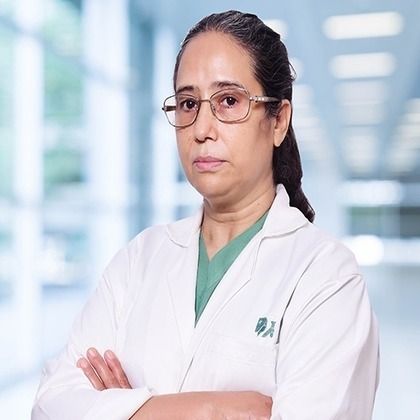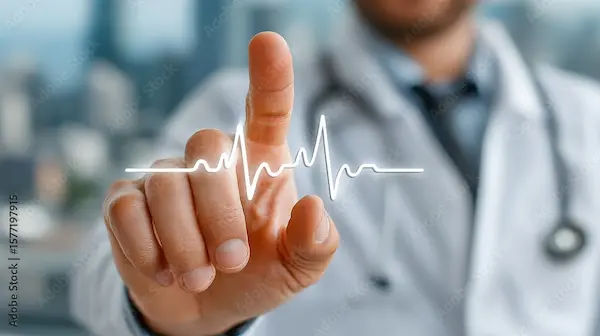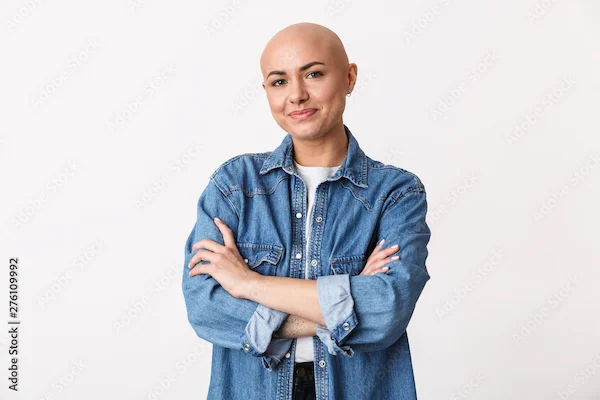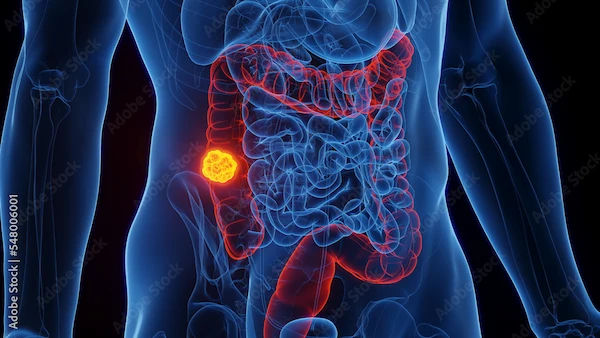Chemotherapy Side Effects and Management
Know about the chemotherapy, side effects, lifestyle and recovery tips to support the treatment and more.

Written by Dr. J T Hema Pratima
Reviewed by Dr. D Bhanu Prakash MBBS, AFIH, Advanced certificate in critical care medicine, Fellowship in critical care medicine
Last updated on 13th Jan, 2026

Introduction
Chemotherapy is a powerful treatment used to fight cancer by targeting and destroying rapidly growing cancer cells. While it can be highly effective, chemotherapy also affects healthy cells in the body, leading to side effects. Understanding these side effects and how to manage them can help patients cope better during treatment.
This article explains common chemotherapy side effects, why they happen, and practical ways to manage them. Remember, every patient’s experience is different; some may have mild side effects, while others may experience more severe ones. Always consult your doctor for personalised advice.
Consult an Oncologist for Personalised Advice
Common Chemotherapy Side Effects and How to Manage Them
1. Fatigue (Extreme Tiredness)
Why it happens: Chemotherapy affects healthy cells, including those responsible for energy production, leading to fatigue.
Management Tips:
- Rest but stay active: Short naps help, but light exercise like walking can boost energy.
- Prioritise tasks: Focus on essential activities and ask for help when needed.
- Eat well: Small, frequent meals with protein (eggs, nuts, yoghurt) can help maintain energy.
2. Nausea and Vomiting
Why it happens: Chemotherapy can irritate the stomach lining and trigger nausea.
Management Tips:
- Eat small, bland meals: Try crackers, toast, or bananas.
- Stay hydrated: Sip water, ginger tea, or electrolyte drinks slowly.
- Anti-nausea medications: Your doctor may prescribe medicines—take them as directed.
3. Hair Loss (Alopecia)
Why it happens: Chemotherapy targets fast-growing cells, including hair follicles.
Management Tips:
- Be gentle with hair: Use mild shampoos and avoid heat styling.
- Consider head coverings: Scarves, hats, or wigs can help.
- Remember, hair usually grows back after treatment ends.
4. Mouth Sores and Dryness
Why it happens: Chemotherapy can damage cells in the mouth, leading to sores or dryness.
Management Tips:
- Rinse with saltwater: Helps soothe sores.
- Avoid spicy/acidic foods: Stick to soft, cool foods like yogurt or mashed potatoes.
- Stay hydrated: Use lip balm and sip water frequently.
5. Weakened Immune System (Low White Blood Cells)
Why it happens: Chemotherapy reduces white blood cells, increasing infection risk.
Management Tips:
- Wash hands often: Prevents infections.
- Avoid crowds: Stay away from sick people.
- Watch for fever: Call your doctor immediately if you have a fever.
6. Diarrhoea or Constipation
Why it happens: Chemotherapy affects the digestive tract, leading to bowel changes.
Management Tips:
- For diarrhoea: Drink fluids (broth, coconut water), eat bananas or rice.
- For constipation: Eat fibre-rich foods (oats, prunes) and drink plenty of water.
- Ask your doctor about medications if symptoms persist.
7. Skin and Nail Changes
Why it happens: Chemotherapy can make skin dry and nails brittle.
Management Tips:
- Moisturise daily: Use fragrance-free lotions.
- Protect from the sun: Wear sunscreen and cover up when outdoors.
- Avoid harsh nail products: Keep nails short to prevent breakage.
8. Nerve Tingling or Pain (Peripheral Neuropathy)
Why it happens: Some chemotherapy drugs affect nerves, causing tingling or numbness.
Management Tips:
- Wear gloves in cold weather: Helps with sensitivity.
- Be careful with hot objects: Reduced sensation can increase burn risk.
- Physical therapy: Gentle exercises may help.
Lifestyle and Dietary Tips to Support Chemotherapy Recovery
1. Eat a Balanced Diet:
- Protein (chicken, lentils) helps repair tissues.
- Fruits and veggies provide vitamins and antioxidants.
- Avoid raw or undercooked foods to prevent infections.
2. Stay Hydrated:
- Water, herbal teas, and soups help flush out toxins.
3. Gentle Exercise:
- Walking, yoga, or stretching can improve mood and energy.
4. Mental Health Support:
- Talk to a counsellor or join a support group.
- Meditation and deep breathing can reduce stress.
5. Follow the Doctor’s Advice:
- Take prescribed medications on time.
- Report any new or worsening symptoms immediately.
When to Seek Medical Help
Contact your doctor if you experience:
- High fever (over 100.4°F or 38°C)
- Severe vomiting or diarrhoea
- Unusual bleeding or bruising
- Difficulty breathing
- Sudden, severe pain
Final Thoughts
Chemotherapy can be challenging, but knowing what to expect and how to manage side effects can make the journey easier. Every patient’s experience is unique, so don’t hesitate to ask your healthcare team for guidance.
Consult an Oncologist for Personalised Advice
Consult an Oncologist for Personalised Advice

Dr.sanchayan Mandal
Medical Oncologist
17 Years • MBBS, DrNB( MEDICAL ONCOLOGY), DNB (RADIOTHERAPY),ECMO. PDCR. ASCO
Kolkata
Dr. Sanchayan Mandal Oncology Clinic, Kolkata

Dr. Sanchayan Mandal
Medical Oncologist
17 Years • MBBS, DNB Raditherapy, DrNB Medical Oncology
East Midnapore
VIVEKANANDA SEBA SADAN, East Midnapore

Dr Gowshikk Rajkumar
Oncologist
10 Years • MBBS, DMRT, DNB in Radiation oncology
Bengaluru
Apollo Clinic, JP nagar, Bengaluru

Dr. Gopal Kumar
Head, Neck and Thyroid Cancer Surgeon
15 Years • MBBS, MS , FARHNS ( Seoul, South Korea ), FGOLF ( MSKCC, New York )
Delhi
Apollo Hospitals Indraprastha, Delhi
(25+ Patients)

Dr. Ruquaya Ahmad Mir
Surgical Oncologist
20 Years • MBBS, DNB
Delhi
Apollo Hospitals Indraprastha, Delhi
(25+ Patients)
Consult an Oncologist for Personalised Advice

Dr.sanchayan Mandal
Medical Oncologist
17 Years • MBBS, DrNB( MEDICAL ONCOLOGY), DNB (RADIOTHERAPY),ECMO. PDCR. ASCO
Kolkata
Dr. Sanchayan Mandal Oncology Clinic, Kolkata

Dr. Sanchayan Mandal
Medical Oncologist
17 Years • MBBS, DNB Raditherapy, DrNB Medical Oncology
East Midnapore
VIVEKANANDA SEBA SADAN, East Midnapore

Dr Gowshikk Rajkumar
Oncologist
10 Years • MBBS, DMRT, DNB in Radiation oncology
Bengaluru
Apollo Clinic, JP nagar, Bengaluru

Dr. Gopal Kumar
Head, Neck and Thyroid Cancer Surgeon
15 Years • MBBS, MS , FARHNS ( Seoul, South Korea ), FGOLF ( MSKCC, New York )
Delhi
Apollo Hospitals Indraprastha, Delhi
(25+ Patients)

Dr. Ruquaya Ahmad Mir
Surgical Oncologist
20 Years • MBBS, DNB
Delhi
Apollo Hospitals Indraprastha, Delhi
(25+ Patients)


_1.webp)

